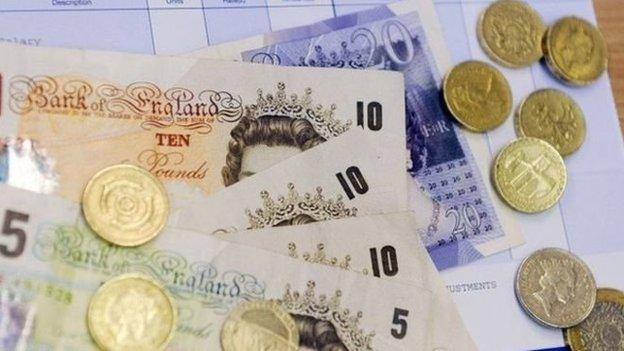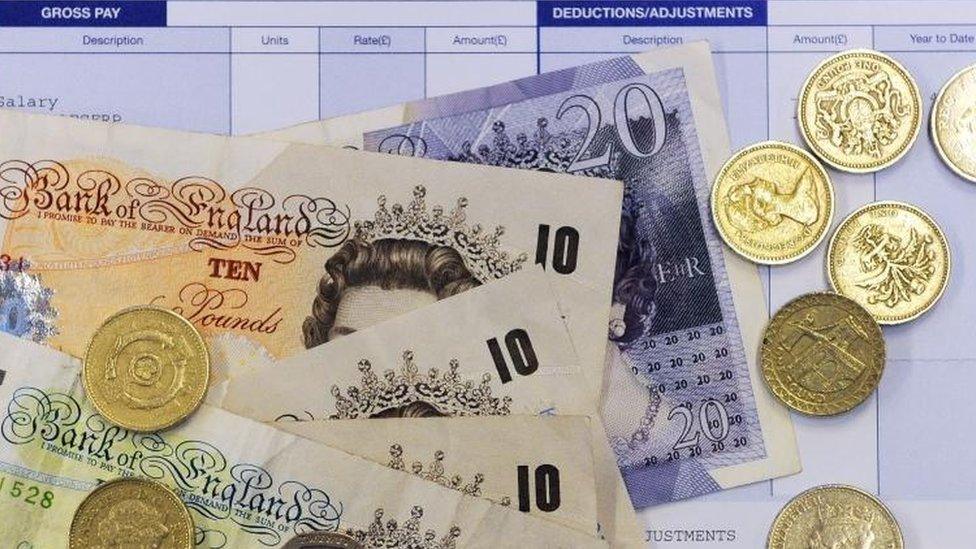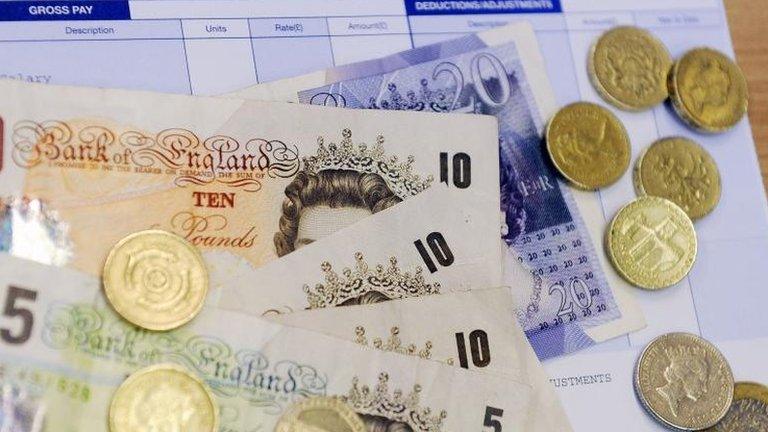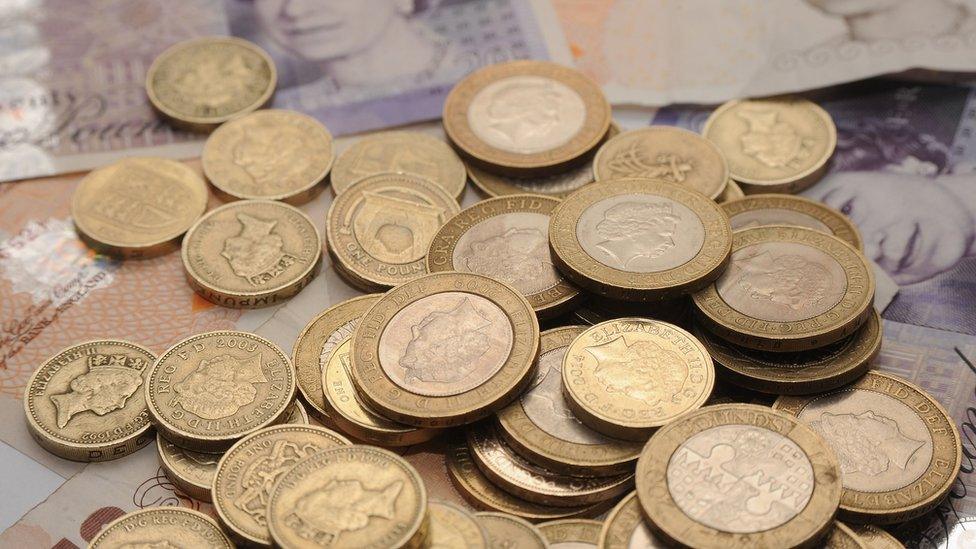National Living Wage should mean pay rise for many NI workers
- Published

The National Living Wage (NLW) takes effect from Friday and should mean a pay rise for tens of thousands of workers in Northern Ireland.
Under the NLW, workers who are over 25 will see their minimum pay rate rise from £6.70 to £7.20.
More than one in 10 employees in Northern Ireland can expect a pay rise as a result, research has suggested.
The Nevin Economic Research Institute (Neri) has used official wages data to calculate the local impact.
It suggests that one in three employees in the hospitality sector are in line for a pay rise.
In both retail and residential care more than one in four employees can expect a pay rise.
Consequences
Women and younger workers are most likely to feel the benefit of the policy.
The Neri research only considers those who will automatically get a pay rise as a result of the NLW.
Those industries which face the biggest impacts have warned of its negative consequences.
The Northern Ireland Hotels Federation has suggested that some hotels and restaurants will close because they cannot afford the increased costs.
Retailers have also warned that businesses will struggle.
Cost
The Independent Health and Care Providers association had warned that "the market will fail" unless they receive an increased tariff from the Health and Social Care Board.
It is understood the Health and Social Care Board has agreed to raise the tariffs for residential homes by 5%.
The tariff for domiciliary care is set by health trusts and they are expected to make their decisions on tariffs next week.
The Office for Budget Responsibility has suggested that the NLW could cost jobs.
Its "central" scenario - the one judged most likely - is that total UK employment by 2020 would be 60,000 less than would otherwise have been the case.
PwC economist Esmond Birnie has calculated that the impact in Northern Ireland could be 2,000 to 4,000 jobs lost or foregone by 2020.
- Published31 March 2016

- Published1 April 2016

- Published14 December 2015
